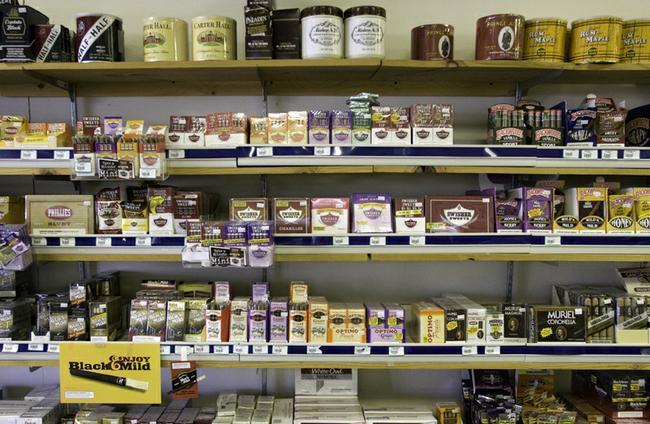
Voters in Missouri could soon determine whether to increase the price of cigarettes.
The American Cancer Society and other partner organizations have been collecting signatures since February for a ballot initiative that would change the tax on cigarettes from 17 cents to 90 cents a pack.
Missouri currently has the lowest cigarette tax of any state. The tax increase would still keep them below the national average of $1.46 a pack.
Misty Snodgrass, American Cancer Society government public relations director, said her organization filed the initiative in September and has been collecting signatures since February. A mixture of volunteer and paid petitioners has been canvassing the state, including MU, in an effort to collect 100,000 signatures by May 6 to give to Secretary of State Robin Carnahan.
“We have seen a lot of energy around this initiative along with support across the state and we are very confident we will turn in the required number of signatures by May 6,” Snodgrass said.
The initiative would give 30 percent of funds to higher education, 50 percent to elementary education and 20 percent to tobacco education. Similar previous proposals that failed in 2002 and 2006 would have sent most of the proposed revenue to health care.
“We believe that this is a much broader initiative than previous attempts, and that’s why we believe it will be successful in November,” Snodgrass said.
The tax will bring numerous benefits, Snodgrass said.
“We have the lowest tobacco tax in the country, and this will help prevent youth from starting to smoke,” Snodgrass said.
College students would directly benefit from the tax through the funding set aside for universities. This would be very important considering recent budget cuts, Snodgrass said.
Freshman Tina Zhang said she signed the petition for a variety of reasons.
“Considering how Missouri currently has the lowest cigarette tax, the increase will bring in much needed revenue to help fund programs, perhaps educational programs on smoking prevention such as D.A.R.E,” Zhang said.
Zhang said programs such as D.A.R.E. were important when learning about the health risks associated with smoking.
“Smoking prevention and having less smokers is important because it would decrease medical costs used to treat tobacco-related illnesses like lung cancer and emphysema,” Zhang said.
Graduate student Angelica Garcia said the tax would obviously affect her as a smoker, but if the money is going to a good cause such as education, she understands the need.
The petition appears to be the most likely chance of a cigarette tax being passed this year. Three Missouri Democrats in the House, including Rep. Mary Still, D-Columbia, proposed bills on the House floor April 26, but all seem unlikely to pass because of timing and opposition.
Missouri Students Association declared their support for Still’s proposal through a resolution passed earlier this year.
“An increase on the excise tax on tobacco would put our state in the right direction and set a solid foundation for the future,” the resolution stated.